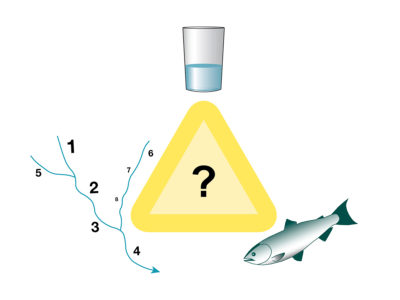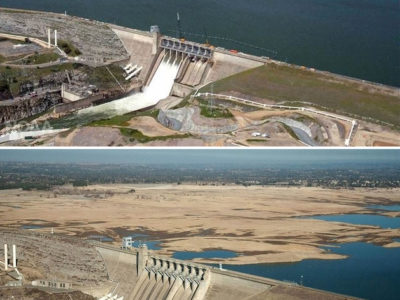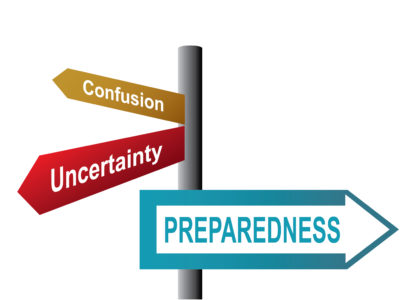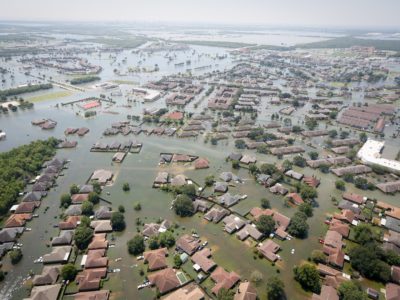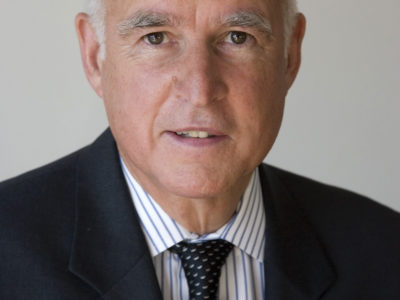Climate Adaptation
Law Schools and the Environment: East Coast Version
Environmental law centers aren’t just a California thing. .
Readers of this blog probably have some sense of what the environmental law centers at UCLA and here at Berkeley are doing. There are too many environmental law centers to do a a comprehensive nationwide survey, and trying to pick a top-10 list would be completely subjective. To keep this post manageable, I’ll only discuss …
Continue reading “Law Schools and the Environment: East Coast Version”
CONTINUE READINGOf War and the Environment
War and environmental disruption are like evil twins, often found together.
A Vietnam-era slogan proclaimed that “war is not healthy for children and other living things.” And war is indeed a danger to the environment. But perhaps less obviously, environmental disruption also makes wars more likely. The slogan was appropriate for its time. The U.S. deforestation campaign in Southeast Asia caused environmental harm on an unprecedented …
Continue reading “Of War and the Environment”
CONTINUE READINGMaking Key Policy Decisions in Advance of Droughts
Part 6 in a Series on Improving California Water Rights Administration and Oversight for Future Droughts
It’s hard to respond effectively to a crisis when you don’t have clearly defined priorities. This is true for sudden-onset crises, like floods and wildfires, and also for slow-onset crises, like droughts. My recent posts have explored why the State Water Resources Control Board (Board) should develop a contingency-based framework to support its drought decisions …
Continue reading “Making Key Policy Decisions in Advance of Droughts”
CONTINUE READINGDeveloping a Decision-Support Framework for Curtailment
Part 5 in a Series on Improving California Water Rights Administration and Oversight for Future Droughts
During a drought, California’s limited water supplies should be allocated transparently, efficiently, and predictably in accordance with the priorities that flow from state and federal law. But what does this mean in practice? What happens when there is not enough surface water to go around in a watershed? California water rights law says that certain …
Continue reading “Developing a Decision-Support Framework for Curtailment”
CONTINUE READINGClimate Change and Your Family’s Future
How much climate change will you see in your lifetime? How about your kids?
If you think about yourself and the two generations after you, a lot depends on your current age, whether you already have kids, etc. To keep this from getting too complicated, let’s focus on someone who was born in the US at the start of the millennium, in 2000. To simplify, I won’t specify gender …
Continue reading “Climate Change and Your Family’s Future”
CONTINUE READINGTrump’s Campaign to Gag Activist Shareholders
His recent executive order tries to “protect” oil companiy management from smart climate planning.
Exxon management was not pleased when shareholders forced them to produce a report on how climate change would impact their business. In May, Exxon is facing another shareholder vote on whether to form a climate change committee on the Board of Directors and whether to disclose how sea level rise will impact its investments on the …
Continue reading “Trump’s Campaign to Gag Activist Shareholders”
CONTINUE READINGA Contingency-Based Framework to Support Drought Decision Making
Part 4 in a Series on Improving California Water Rights Administration and Oversight for Future Droughts
In my last post, I outlined actions the State Water Resources Control Board (Board) can take to improve its future drought response capabilities. Our core recommendation is for the Board to bring greater predictability, timeliness, and effectiveness to water rights administration and oversight during droughts by proactively developing a contingency-based framework to support its drought …
Continue reading “A Contingency-Based Framework to Support Drought Decision Making”
CONTINUE READINGActions to Improve California Water Rights Administration and Oversight for Future Droughts
Part 3 in a Series on Improving California Water Rights Administration and Oversight for Future Droughts
In California, the next drought is always looming on the horizon. While we don’t get advance warning of when a drought will occur, how long it will last, or how severe it will be, we do have advance knowledge that drought planning and preparation are important. First, we know water management during droughts can have …
CONTINUE READINGI’ll Just Be Over Here In My Fallout Shelter
The Green New Deal may be ambitious, but it’s not alarmist.
It would be impossible to react to every piece of misinformation or poor reporting about climate change—let alone every misguided opinion editorial—that lives online today, but Bret Stephens’ February 15 piece in the New York Times strikes me as warranting a response. That’s not because of the clickbait title (“Is Nancy Pelosi A Climate Skeptic?” …
Continue reading “I’ll Just Be Over Here In My Fallout Shelter”
CONTINUE READINGAssessing–and Celebrating–California Governor Jerry Brown’s Environmental Legacy
Governor Brown Easily Ranks as the Top Environmental Governor in State History
Don’t it always seem to go That you don’t know what you’ve got `Til it’s gone –Joni Mitchell (“Big Yellow Taxi”) On this, the last day of Jerry Brown‘s tenure as California’s governor, it’s appropriate to reflect on Governor Brown’s environmental legacy. And a most formidable legacy it’s been. Brown has, quite …
Continue reading “Assessing–and Celebrating–California Governor Jerry Brown’s Environmental Legacy”
CONTINUE READING




